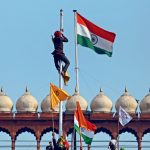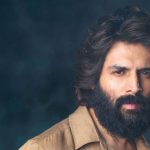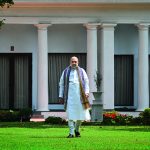Atal Bihari Vajpayee (1924-2018): The Beloved
The leader India indulged with so much affection and admiration departs
/wp-content/uploads/2018/08/Atal1.jpg)
On a deserted street outside Ahdoos Hotel in curfew-bound Srinagar on that distant afternoon of August 2016 from where I was heading towards Press Enclave, an elderly gentleman in a skullcap approached me, almost blocking my way, and began to talk animatedly in Hindi and English. He didn’t introduce himself, but I didn’t panic because he had an air of rustic charm—or was it avuncular innocence?—about him. His grouse was about why very few ‘Indian’ leaders understood the predicament of the people of the Valley. Describing himself as ‘chacha’, he berated me for being insensitive in my reporting on Kashmir, having already assumed that I was a “journalist from India” and was in the city to spread canards about them. A few paramilitary men went past in a vehicle and he whispered to me that the last one in Delhi who understood the likes of him was Vajpayee. “He was a Sufi,” the old man said, emphasising the last syllable. And he darted away.
The idea of Sufism is close to a Kashmiri’s heart. Or was. Without doubt, being called a Sufi is among the best compliments one could get in the Valley, and Atal Bihari Vajpayee has had a long record of securing the respect of people on the other side of the political divide, dating back to his early days in politics and continuing all through his rise in the BJP. This was no mean feat, considering the relatively rigid stance that marked his early political career, the aggressive Hindutva posture that was characteristic of those groomed in the Arya Samaj and then the RSS, a stance that often resurfaced over his 70-plus years in active politics.
Until his semi-retirement in 2004 after losing that year’s General Election and his full retirement in 2009 after suffering a debilitating stroke, he remained the most charismatic leader of his party, his popularity far exceeding that of the Hindu nationalist entity he was part of. He was the glue that kept partners together in a rainbow coalition formed in 1999, assuring him the honour of being the first non-Congress Prime Minister to complete a full term in office.
His popularity across political lines could be attributed in large measure to his ability to accommodate diverse views and his respect for rivals. These were qualities he probably acquired from his long stint in Parliament and also his efforts to internalise the ideals of such political opponents as Jawaharlal Nehru, India’s first Prime Minister who was a liberal politician with much patience for opposition leaders despite the vast majority he commanded in the House.
In spite of Vajpayee’s frequent excursions to the Hindutva camp, a close analysis of Vajpayee’s speeches from 1957 to 2004 reveals that his unstated idol was Nehru himself, though when the Congress leader was alive, Vajpayee was a bitter critic of many of the leader’s policies. On more than one occasion, Nehru broke his habit of speaking in English and instead spoke Hindi in reply to a Vajpayee speech made in chaste Hindi.
When the young Vajpayee once approached Nehru along with two other MPs of his then party, the Bharatiya Jana Sangh, demanding a discussion on the Government’s shortcomings in the humiliating war with China, Nehru immediately agreed.
Nehru also occasionally showered praises on Vajpayee, making it known to everyone that the opposition leader was one of his favourites. The senior statesman didn’t even respond when Vajpayee once accused the Congress Prime Minister of having a split personality. “You are both Churchill and Chamberlain,” he told Nehru, the leader who once introduced Vajpayee to a foreign dignitary, saying “This young man will one day become the country’s Prime Minister.” And when Nehru died, Vajpayee gave a touching speech in Parliament: “A dream has been shattered, a song silenced, a flame has vanished in the infinite… When friends were asleep and guards were slack, we were robbed of a priceless gift of life. Bharat Mata is stricken with grief today….”
For a man who had spent a large chunk of his career in Delhi—and in Parliament—and one who believed in taking a bipartisan approach to many issues, Vajpayee knew only too well the lures of Lutyens’ Delhi and its power games. He understood the role of emotions in politics, and maintained strong friendships with people in high places and across political parties. Besides outmanoeuvring rivals within his party, he also knew the art of power balancing in the time of coalition politics.
For a man who had come under the spell of Nehru, Vajpayee had to balance his own views in more ways than one. The RSS, the nursery of his political career, wasn’t impressed with his unconventional lifestyle: living with a woman and her family that included her husband; and his drinking and eating habits that were looked down upon. For the average shakha-goer, Vajpayee was a breakaway from the usual mould of Hindutva politicians.
Vajpayee was famously averse to the Ram temple movement steered by LK Advani that mobilised masses in favour of the BJP. He even poked fun at TV visuals of Advani in a motorised chariot trailed by a procession of slogan-chanting activists as “Advaniji and his vanar sena”. As a man who loved the good life, Vajpayee wasn’t an admirer of aggressive mobilisation tactics of the BJP under Advani, but when the party was thrown into a crisis in 1992, with various state governments headed by his party dismissed by the Centre after the demolition of a disputed mosque in Ayodhya, Vajpayee came back into the political limelight as a moderate who could challenge what the party called a ‘murder of democracy’ under Congress rule. He would typically stray from the Sangh’s core programmes, but always came back with renewed vigour. Whenever his party’s image took a tumble, he would use his reputation as a moderate to draw sympathy for the cause of Hindutva politics. That made him an invaluable asset for the Sangh and also potential allies.
One could sense this non-conformist trait throughout Vajpayee’s life. He was a regular at RSS shakhas as a teenager and even composed a ballad that is now sung at many of them: ‘Hindu tan man, Hindu jeevan, rag, rag mera Hindu parichay (I am Hindu in heart and body, my life is Hindu, Hindu is my only identity).’
But in school, he was also influenced by the Leftist movement, becoming a member of the AISF, the students arm of the CPI. After he was caught by the police for taking part in the Quit India movement (and accused of making a confessional statement to the police), he returned to the RSS fold. Around the turn of the 1950s, he was handpicked by Syama Prasad Mookerjee, founder of the Bharatiya Jana Sangh (BJS), to be his assistant. Mookerjee was enamoured by Vajpayee’s public-speaking skills and their association continued until 1953 when Mookerjee said goodbye to him at Pathankot before he entered Jammu and Kashmir, where he died in incarceration.
Vajpayee would often stray from the Sangh’s core programmes but whenever his party’s image took a tumble he would use his reputation as a moderate to draw sympathy for the Hindutva cause
FOR A POLITICAL amateur who had spent a lot of his time in the company of RSS men and like-minded people, it was the Lok Sabha that became his temple of learning, as Vajpayee later acknowledged. He was still seeen as a hardline Hindutva leader when he won elections from Balrampur and became a Member of Parliament. However, a close examination of his speeches over the decades shows how he evolved from a militant Hindutva and Swadeshi activist to the moderniser he later became when the world was on the cusp of change and India in transition from the 1990s to 2000s. I went through his speeches for a biography I had written of Vajpayee to suggest that ‘Nehru’s forbearance and genial ways to the most virulent of criticisms, launched by the likes of him, were destined to have a long-standing effect on the angry, young parliamentarian. Notwithstanding his bloopers, Nehru’s aristocracy, his striking presence and liberal aura would leave young Atal deeply inspired’.
Many years later when Vajpayee was External Affairs Minister in the 1977 Morarji Desai Government, he discovered that Nehru’s photograph was missing from a certain spot in Parliament. He only had to ask where it had gone, and the photo was back in its original spot the next day. In fact, Vajpayee’s reverence for Nehru was used by some of his detractors within the Jana Sangh, especially the late Balraj Madhok, to attack him, albeit unsuccessfully. It goes to Vajpayee’s credit that he drew the Jana Sangh away from the regressive ways of his early mentors, transforming the party and himself to suit new political goals.
Incidentally, though he was extremely popular outside, within the Jana Sangh he wasn’t considered the immediate successor to Deendayal Upadhyay who died under mysterious circumstances in 1968. It took Vajpayee much effort to ward off competition and emerge the most prominent leader of the party by early 1973. Some of those familiar with that stage of his life say that he was a past master in outsmarting anyone who conspired against him. He, Advani and Nanaji Deshmukh who—in that order—became powerful in the BJS, also had the blessings of RSS chief MS Golwalkar, who passed away in 1973.
As a survivor in the rough and tumble of Sangh politics, Vajpayee was adept at defending himself from those plotting his downfall. He also used various tactics to overleap political hurdles, which also meant he had to court many controversies. During the Emergency, after he was arrested along with Advani and others in Bangalore and later transported to Delhi for a surgery, Vajpayee was placed under house arrest. Ram Bahadur Rai, now president of the board of trustees of the Indira Gandhi National Centre for Arts, was general secretary of the ABVP when he met Vajpayee on December 31st, 1976. No one had an inkling then that the Emergency was soon to be lifted. Vajpayee told Rai that he had met Om Mehta, a minister close to Prime Minister Indira Gandhi. Vajpayee, Rai said, asked him to get ABVP to own up to alleged destruction of public property and tender an apology for the Government to begin efforts to repeal the Emergency laws. During the period, Vajpayee had also written a letter to Vijaya Lakshmi Pandit, aunt of Indira Gandhi, about his worries. There are those within the Sangh who argue that it was Vajpayee who influenced then RSS chief Balasaheb Deoras to tone down its aggression and instead lie low towards the end of the Emergency.
Towards the end of his career, the BJP had begun to treat a new political path and Vajpayee made it clear that he wasn’t too pleased with the changes that were afoot
Notwithstanding such controversies, Vajpayee was a crowd-puller any party would want on its side. After the Emergency was lifted in 1977, on the night Vajpayee was to address a large crowd at Ram Lila Maidan in Delhi, the national broadcaster aired Bobby, a blockbuster Raj Kapoor movie starring Dimple Kapadia and Rishi Kapoor. As Tavleen Singh wrote after listening to that speech, Vajpayee started off saying, “Baad muddat ke mile hain deewane (it has been an age since we whom they call mad have had the courage to meet).” His speech was an incredible experience. I summed up the speech in my book: ‘Between Bobby and him, people chose Vajpayee.’
ND THEN CAME his first experience with power. Despite hiccups and infighting that marred India’s first non-Congress Government ever, Vajpayee left a mark as External Affairs Minister with his outreach to the Chinese—though no breakthroughs were achieved, the ice was broken—and his speech in Hindi at the United Nations. He also played a role in early moves to normalise ties with Israel. It was when he was India’s foreign minister that Moshe Dayan, an Israeli minister and iconic general, visited India.
Following the fall of the Janata Party experiment that saw two prime ministers within two years—Morarji Desai and Charan Singh—Vajpayee wrote a scathing article titled ‘All Responsible for Janata Crisis’, arguing that the RSS should not be remote-controlling political parties and that it should remain a cultural and social organisation. Months later, at a rally in 1979, Deoras said that the RSS had to change with the times. After Indira Gandhi came back to power in 1980, Vajpayee wanted to create a political entity that appealed to a broader section of people and also shed its militant character. That was how the Bharatiya Janata Party was born in 1980 in Bombay. He wanted to make it a democratic alternative to the Congress, and Muslim baiting and extreme nationalismwere taboo. At the end of his speech in December 1980 in Bombay, he said to loud cheers, “Andhera chatega, suraj niklega, kamal khilega (the darkness will lift, the sun will rise, the lotus will bloom).”
All this shows that Vajpayee was ready to experiment with myriad means to wean people away from the Congress. Many of his attempts failed to click, but he became more charismatic with each of his moves, making him indispensable to a party looking for a watershed moment in politics and a crowd-puller as its spearhead.
In 1984, like many times earlier, after he lost the polls held in the wake of Indira Gandhi’s assassination, Vajpayee returned to the RSS seeking help. Deoras was more than happy. But the modus operandi of the next-stage BJP suited a hardliner like Advani more than it did Vajpayee. It was the late-80s’ experiment of polarisation along religious lines through the Ram temple movement and realignment of forces that would strengthen the BJP further.
Having friends across the political spectrum helped Vajpayee despite temporary setbacks in the 1990s within the party after Advani emerged the frontrunner. Advani himself yielded to Vajpayee at the 1995 conclave of the BJP in Mumbai, where he announced that Vajpayee would be the country’s prime minister if the BJP formed a government. The rest, as they say, is history.
In the 1996 polls, the BJP emerged as the single largest party in the Lok Sabha and President Shankar Dayal Sharma, with whom he shared a friendship, invited him to form the Government, though it lasted only 13 days. Sharma had already had a pandit decide on the date and time of the swearing- in. That Government was destined to fall, but when it did, Vajpayee was feted as a tragic hero. In his defeat, he stole the show, perhaps setting the stage for further triumphs for him and his party later.
As Prime Minister for a 13-month government in 1998 and later as premier for a full term from 1999 to 2004, Vajpayee would scale new heights. Misgivings and hesitations of the rest of the world about India began to disappear when he led the country. Despite controversies, the Kargil war with Pakistan and an aeroplane hijack crisis in which India had to free dreaded terrorists, Vajpayee went on to make his name as a moderniser. He triggered the cell phone revolution in India by slashing tariffs manifold. He made the most concerted push in over five decades to create new infrastructure. He pushed ahead with economic reforms that had been stalled in the second half of the 1990s. Vajpayee also went to become the father of a second nuclear age, a race that had South Asia as its nucleus after the end of the Cold War. He also took bold initiatives with the intent to normalise relations with Pakistan. At a personal level, he would break protocol to speak with journalists and offer them unexpected opportunities to interact with him. Surprisingly for a man known for his oratorical flourish, he was taciturn in private interactions and capable of long silences.
Towards the end of his career, the BJP had begun to tread a new political path and Vajpayee made it amply clear he wasn’t too pleased with the changes that were afoot to pitch the BJP as a combative, hardline political force. But as always, he finally agreed with the majority in the party, especially when it came to the question of the continuance of Narendra Modi as Chief Minister of Gujarat after the 2002 riots in that state.
True, he was in fragile health soon after, possibly because he refused to “go inside a machine” for a CT scan at least four years before he had a stroke. A close friend and relative says that an early diagnosis would have helped him stay healthy for longer. At the end of the day, his ascent—from a school teacher’s son, to an Arya Samaj member, to an RSS full-timer, to a Jana Sangh leader, to a parliamentarian, to a BJP founder, to the leader of the Opposition in Parliament and then to the coveted position as the first non-Congress leader to complete a full term in office—has been dizzying. He was the man who guided India through an age of rapid transition. A true democrat, masterful orator and quintessential epicure, his image remains unsullied by the ravages of time.
(Ullekh NP is the author of The Untold Vajpayee: Politician and Paradox)
About The Author
CURRENT ISSUE
Rashmika Mandanna: India’s Sweetheart
MOst Popular
4

/wp-content/uploads/2025/04/Cover-Rashmika-New.jpg)















More Columns
India received a heads up from US on tariffs Rajeev Deshpande
Saving Farmers from the Unions Siddharth Singh
The New Hotspot Kaveree Bamzai